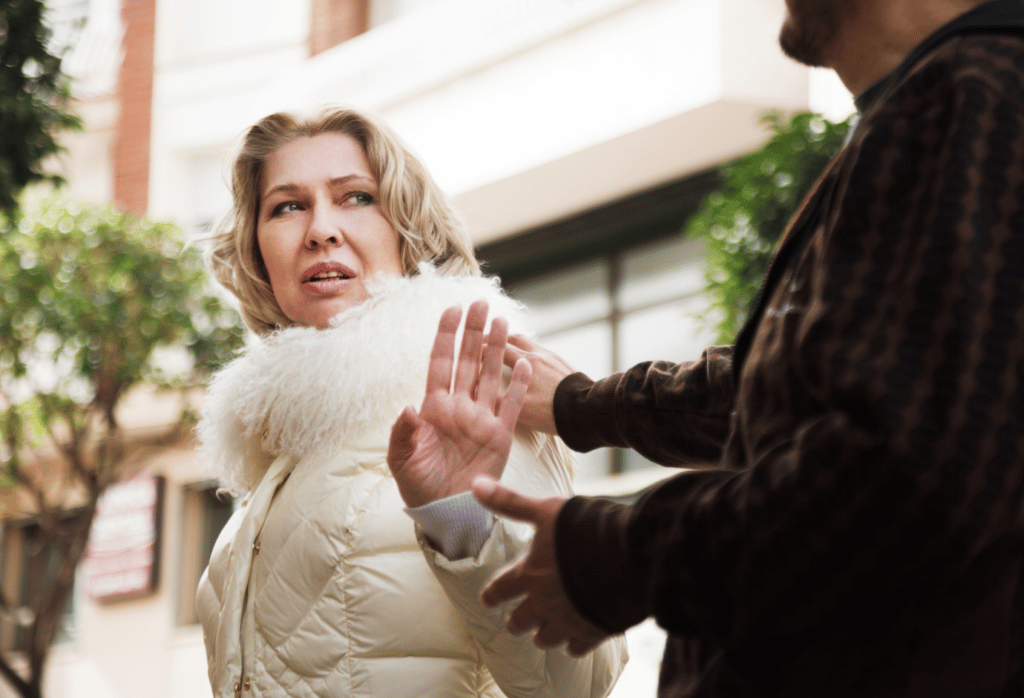Almost four in five women in Australia have experienced street harassment in public spaces, according to a new study.
For women in marginalised groups, such as First Nations women, Black women, women of colour, women with disability, women with low income, trans women, and gender diverse and nonbinary people, that figure rises to 90 per cent.
The research, conducted by Ipsos and commissioned by L’Oreal Paris in collaboration with Plan International Australia, interviewed more than 2,000 Australians — including hundreds of women under 35, who list sexual harassment as the most important issue faced by women and girls.
More than 80 per cent of participants said when they experienced street harassment, the impact was not as severe when a bystander intervened. However, just 36 per cent said they had intervened when they saw someone being harassed in public, while 86 per cent blamed a lack of training and education in knowing how to intervene.
Ninety-seven per cent of women reported using strategies to avoid street harassment, while 65 per cent under 35 said they deliberately chose to avoid certain means of transport in order to avoid being harassed.
Susanne Legena, CEO of Plan International Australia, believes women, girls and gender diverse people have normalised and internalised street harassment for “far too long.”
“Unwanted sexual behaviour is not a compliment, it is a crime,” Legena said in a statement.
“Every person – especially young people – deserves to be free, safe and equal in their city, and that will only happen when we can eliminate street harassment for good.”
Street harassment is an issue her organisation has been working on for several years.
A 2018 Plan International study found that across the world, street harassment was the number one safety risk facing girls and young women. In Australia, 92 per cent of women expressed feeling uncomfortable taking public transport alone after dark.
A more recent study of Australian women between 18-24 found that 42 per cent of them feel unsafe walking at night because of the risk of sexual harassment, and the numbers are significantly higher for young women with a disability.
The issue has only been worsened by the pandemic and its lockdowns, as another study revealed earlier this year.
Three years ago, Plan International launched the Free To Be campaign, alongside a crowd-mapping tool developed with CrowdSpot and Monash University’s XYX Lab to help women communicate with each other regarding places they love, avoid, feel safe in and parts of a city that could be improved.
This week, Plan International Australia’s six youth leaders have teamed up with L’Oréal Paris to launch a collaboration campaign, Stand Up Against Street Harassment, to raise awareness about street harassment.
Free, accessible one-hour virtual training sessions will be available to the Australian public to learn the 5Ds – Distract, Delegate, Document, Direct, and Delay, giving bystanders a range of intervention techniques to safely stand up to street harassment that aren’t limited to directly confronting the perpetrator.
The training sessions will be delivered by Plan’s youth leaders, all of whom campaigned and researched on street harassment.
Elizabeth Payne, one of the youth leaders who will delivering the training sessions, believes safety should be a priority for bystanders to street harassment.
“There is almost always a way to intervene safely,” Payne said.
“I’ve had a lot of people come to me with disclosures of street harassment. I’ve experienced street harassment myself that made me fear for my safety. I’ve seen and felt first hand the confusion and anger people feel and the overwhelming sentiment that their experience ‘wasn’t significant enough’ to report.”
“As a society we have fallen into the trap of assuming if we can’t prove it, if there is no evidence other than our internal hurt, it’s not worth reporting because what are they going to do about it.”
“We need to start standing up for each other and not brushing this off as a normal experience. We need to be better bystanders. No one deserves to feel unsafe, period,” she said.
Fellow trainer and youth leader Angelica Ojinnaka, agrees, adding that street harassment significantly reduces women’s freedom.
“It changes the way we live our lives,” she said. “Some of us stop going out at night, or only go out with another person, some avoid public transport, some change the way we dress, or carry our keys gripped tightly in our hands.”
“Most of us – especially those of us from other minority groups –are hyper-vigilant in public spaces. This takes up a huge amount of mental and physical energy,” she said.
The latest Stand Up campaign is bolstered by high-profile celebrity ambassadors, including Jessica Mauboy, Cody Simpson, former Miss Universe Maria Thattil, and activist, Tarang Chawla.


